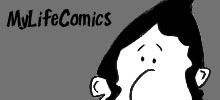 The Dante Club by Matthew Pearl
The Dante Club by Matthew PearlA quick summary stolen from back cover: Boston, 1865. A series of murders, all of them inspired by scenes in Dante's Inferno. Only an elite group of America's first Dante scholars--Henry Wadsworth Longfellow, Oliver Wendell Holmes, James Russell Lowell, and J.T. Fields--can solve the mystery. With the police baffled, more lives endangered, and Dante's literary future at stake, the Dante Club must shed its sheltered literary existence and find the killer.
How I'd sum it up to another reader: Well, it's this murder-mystery novel filled with historical characters, places, and events but still completely an original work of fiction. There's a police detective, but he's sort of in the background despite being the first African-American copper since the Civil War ended. No, the real clue-seekers are truly the brains of the operation: poet, scholar, teacher, doctor--all of them literary snobs. These are the members of the Dante Club, and they want to find whoever is committing these gruesome acts of murder not just to keep the streets of Boston safe but to protect Dante, the man himself and his work, from further harm. They won't do it quickly though. It'll be painstakingly slow and studious, with a sharp attention for details.
It's easy to compare it to other such history-laden romps like The Da Vinci Code by Dan Brown, but Pearl's work is ten steps above. It might not have as many cliffhanger endings at every chapter break, but it certainly holds one's attention all on its own.
The cover sez and shows: A faded image of the Boston of old, complete with a university tower rising in the distance and a few splotches of blood throughout.
Number of dragons, wizards, and reluctant farmer boys: Not a single one, but that was sort of to be expected.
Hardest name to pronounce in my head: Pietro Bachi.
Best part: The murders. Pearl, being a Dante scholar himself, knows the material of Dante's work and handles the translation of torture and punishment from cantos to real life with a sense of respect and authoritative precision. They are cruel and disturbing. Hauntingly unsettling. I'll admit that I'd have liked to have seen more levels of Hell interpreted, but the ones that were are still fresh in my mind.
Worst part: Some of the characters were quite hard for me to set apart. Longfellow and Lowell, namely. Their names were too similar, and eventually all of the members of the Dante Club began to sound alike. Also, at times, Pearl's prose became too wordy, too heavy with theological musings and so forth. I also found the reveal of the killer's identity to be somewhat of a letdown. Here I was expecting to find a man that lived and breathed Dante, that would kill for him, that did kill for him, but the murderer turned out to be something completely different.
Random thoughts and theories: Being Matthew Pearl's debut novel, The Dante Club is most certainly a smart and engaging tour through a historical time when the power of words, of Dante's words, were both powerful and deadly. I loved all the details, especially when it came to dissecting the many cantos and sonnets, searching deep inside them for any light at all.
If said book were a ride at a Disney theme park: It'd be a more suspense-laden trip through all of Liberty Square in the Magic Kingdom.
If in school its grade would be: A-
Come on, write us a haiku:
Bostonians love
Their Dante spoken with pride
Just not the new dead
Overall, y'all: It's a decent mystery novel, and will definitely appeal to any reader that has the slightest interest in Dante and his work. Some parts are bogged down by too many talking heads, but if you can get past that then a grand epic murder-mystery spanning all of Boston lies ahead. The Divine Comedy, split open for all to see. Just remember: Abandon all hope, ye who enter here
Books I might or might not compare to: The Da Vinci Code by Dan Brown and The Rule of Four by Ian Caldwell.
Some linkage: Buy the book at Amazon, or check out his latest release, The Poe Shadow.




2 comments:
Sounds interesting enough to think about reading. And that's saying a lot for someone who doesn't like to read outside his genre.
Thanks, TK. I, too, rarely read outside of my genre titles, but every now and then I venture forth. I'd say this is a pretty good choice considering it's heavily laden with so much fantastic history that you'll soon forget what you're reading and be on the chase of a disgusting murderer in no time.
Post a Comment